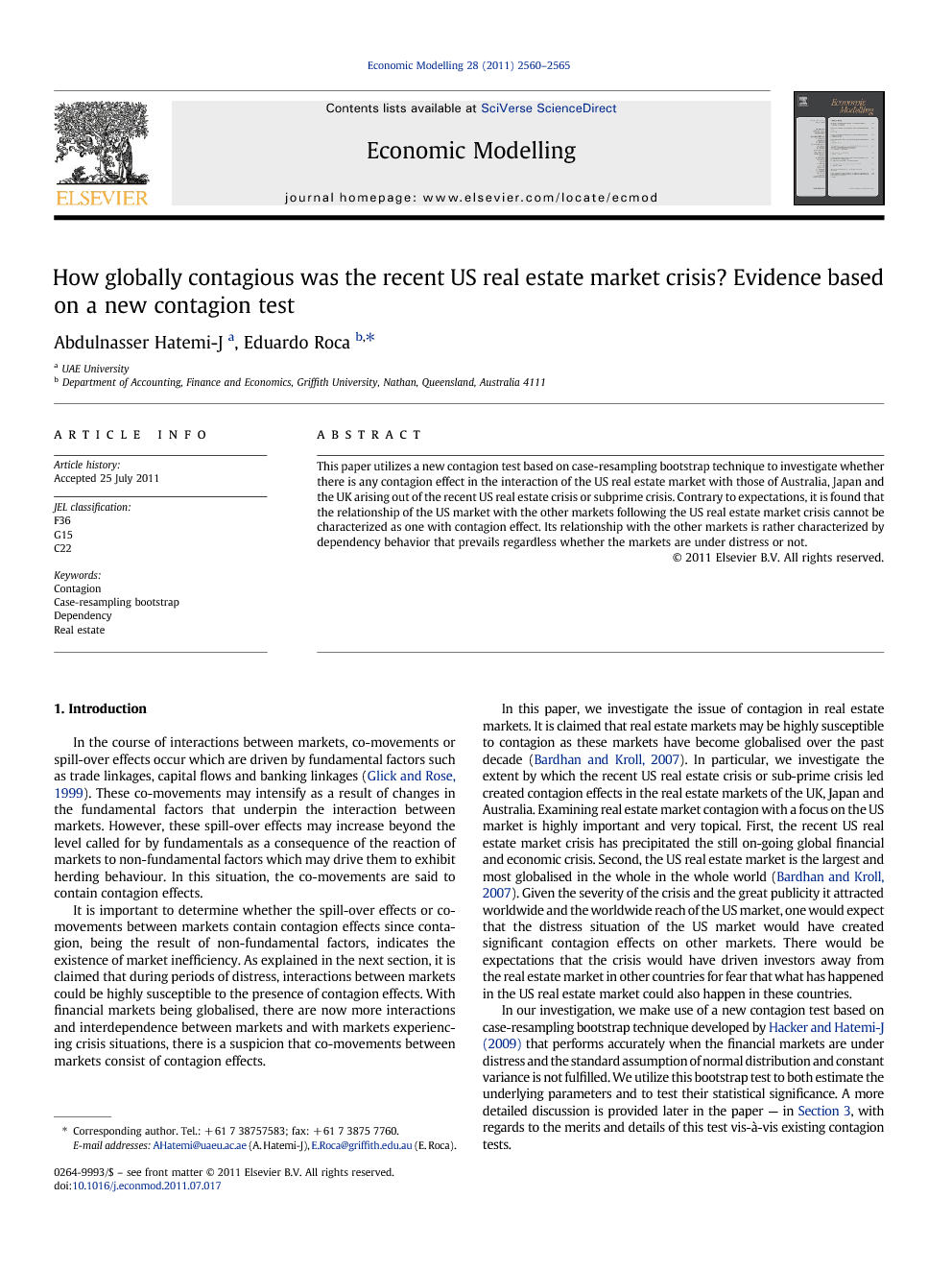ترجمه فارسی عنوان مقاله
چگونه بحران اخیر بازار املاک و مستغلات آمریکا در سطح جهان مسری بود؟ مدارک و شواهد بر اساس آزمون سرایت جدید
عنوان انگلیسی
How globally contagious was the recent US real estate market crisis? Evidence based on a new contagion test
| کد مقاله | سال انتشار | تعداد صفحات مقاله انگلیسی |
|---|---|---|
| 15597 | 2011 | 6 صفحه PDF |
منبع

Publisher : Elsevier - Science Direct (الزویر - ساینس دایرکت)
Journal : Economic Modelling, Volume 28, Issue 6, November 2011, Pages 2560–2565
ترجمه کلمات کلیدی
-
سرایت -
بوت استرپ مورد بازنمونه گیری -
وابستگی -
املاک و مستغلات
کلمات کلیدی انگلیسی
Contagion,
Case-resampling bootstrap,
Dependency,
Real estate

